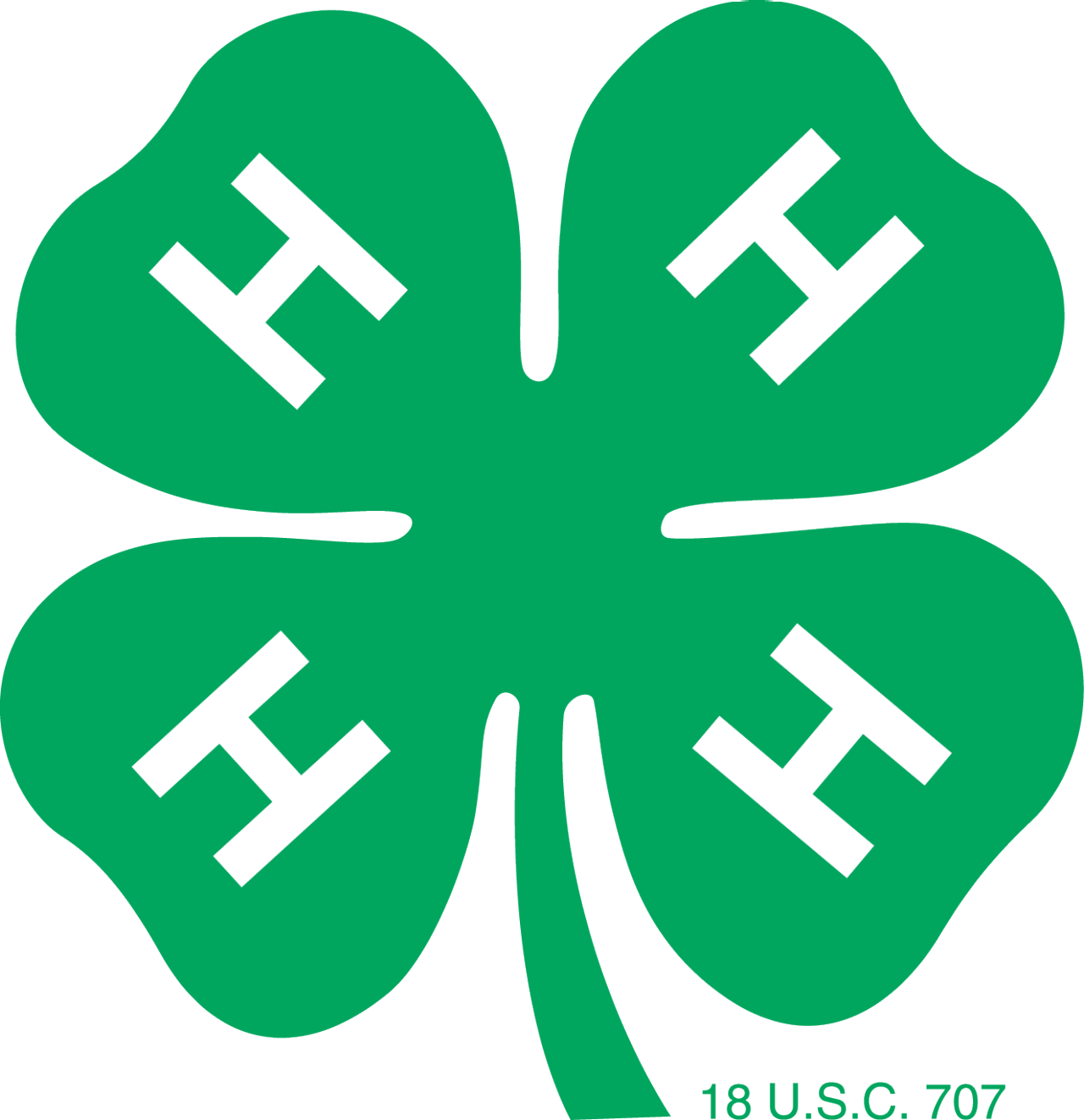
Join 4-H Youth Development
Contact us

Delaware 4-H is open to all youth who are between the ages of 5 and 19 as of January 1 of the program year.
Follow Delaware 4-H on social media!
Enroll in Delaware 4-H
Delaware 4-H is open to all youth who are between the ages of 5 and 19 as of January 1 of the program year.
Members may participate in Delaware 4-H, regardless of their state of residence. Many Delaware 4-H members live in neighboring states! However, they may only participate in competitive 4-H activities (horse shows, livestock shows, etc) in the state in which they are a member.
- New 4-H members: Please contact your county extension office (numbers listed below) before beginning the enrollment process. They will assist you with identifying available clubs and answer questions you have regarding Delaware 4-H.
- Returning 4-H members: All families may enroll or re-enroll ONLINE after September 1. If you have any questions about the online re-enrollment process, please contact your county extension office. If necessary, paper enrollment forms may still be submitted.
Do not use Internet Explorer when enrolling online.
(Family & Volunteer Enrollment Guide and Instructions)
(Club Leader login tip sheet)
Contact an extension office
- New Castle County Extension Office: (302) 831-8965
- Kent County Extension Office (Paradee): (302) 730-4000
- Sussex County Extension Office (Carvel): (302) 856-7303
Paper Forms
en español
- 4-H Formulario de Inscripción de Miembro/Líder 2020-2021 (Microsoft Word)
- 4-H Formulario de Inscripción de Miembro/Líder 2020-2021
- Desarrollo Juvenil 4-H Salud - Código de conducta - Foto - Mantener forma inofensiva
Enroll in Cloverbuds
The 4-H Cloverbuds program is designed to introduce children age 5 to 7 to traditional 4-H programs. Cloverbuds learn by doing in this informal, non-competitive, educational program conducted by Delaware 4-H. Cloverbuds helps children get along with each other, explore many interests, practice skills and build self-confidence.The 4-H Cloverbud program is open to all youth regardless of race, color, sex, national origin or handicap. The curriculum is designed for children in kindergarten through second grade.
In addition to regular club activities and meetings, Cloverbuds participate in a number of county- and state-wide activities, including the Delaware State Fair. Because the program is non-competitive, members are not evaluated on their efforts, but are recognized for their participation. Special Cloverbud day camps might be offered in your county.
Cost: It does not cost to join Cloverbuds. 4-H curriculum and training are provided to interested parents at no cost. Clubs can determine on their own whether or not to charge dues.
Meetings: Cloverbud clubs meet in members’ homes or neighborhood locations. Meetings, conducted informally by parent leaders, are typically held twice a month, but can be held more if desired. Meetings usually last one hour and include pledges, songs, games, learning activities and a snack.
Contact an extension office
- New Castle County: (302) 831-8965
- Kent County: (302) 730-4000
- Sussex County: (302) 856-7303
- Delaware State University: (302) 857-6434
Additional information
Community clubs
Community clubs are the gold standard of 4-H participation in Delaware, featuring the most benefits, fun and learning opportunities! Youth enroll in projects and participate in group activities and meetings. The club elects officers and plans an educational program of business, community service and learning together. Children must be between the ages of 8 to 19 on January 1 of the program year.
Single project clubs
A single project club is a community club where one single project is the focus. Examples might be livestock or robotics clubs. To join, children must be between the ages of 8 and 19 as of January 1 of the program year.
Family clubs
A family may form a 4-H club in cases where a local 4-H club is not accessible or convenient, or where there is a special topic of interest to the family. Children must be between the ages of 8 and 19 as of January 1 of the program year.
Cloverbuds
The 4-H Cloverbud program introduces children between 5 and 7 years of age to a variety of 4-H experiences.
4-H Afterschool
4-H Afterschool clubs meet during or after school and often focus on a single subject such as computers or arts. Each afterschool program has its own age ranges and enrollment.
4-H school enrichment groups
Meeting during school time and using curricula supplied through 4-H, these groups are coordinated by partnerships between Delaware 4-H, Cooperative Extension and school personnel. Children must be in grades K-12 or equivalent to participate.
What does it cost to be in 4-H?
There are no statewide dues or membership fees for 4-H, but there are some out-of-pocket expenses for participating in 4-H. Dues cannot be used to keep someone out of 4-H.
Expenses might include:
- Project materials and other resources needed to complete a 4-H project
- Club dues/fees: Some clubs charge per-member fees to purchase refreshments, project books, State Fair passes, club t-shirts, supplemental insurance, etc. Please ask your club leader about their fee structure.
- 4-H events and opportunities: Fees are charged for participation in some events and opportunities, including camps, workshops, conferences, trips, etc. Some scholarship money is available to offset these costs. Contact your local county 4-H agent for more information.
What happens at regular club meetings?
At regular club meetings, members usually participate in project work, business meetings, social activities or special interest programs. If there is no business to conduct, members will work on projects for and play a game or two. Sometimes the whole meeting is devoted to one activity such as electing officers, planning a new program, dog obedience training or attending a skating party!
How are club officers selected?
Clubs may have whatever officers and committees they need to run their own business. 4-H has materials available for presidents, vice-presidents, secretaries, treasurers, news reporters, recreation leaders, health and safety chairpeople, as well as song leaders. It is a good idea to wait until the second or third meeting before electing officers to ensure that members know each other before voting.
Who plans programs for the club?
Members of the club plan their own programs. If the club is small, the whole group may assist. If the club is large, ideas come from everyone and a committee will put programs together.
How often do clubs meet?
Some clubs meet every week for a month or two, while some meet once or twice a month, throughout the year. This depends on the group's availability, project goals and what members want to do.
When, where and for how long do clubs meet?
This depends on the group. The most important thing is to have a regular meeting time that members and their families can remember. Many clubs meet for an hour or two after school, in the evening or on Saturdays. Clubs may meet in any place that is convenient and large enough, such as leaders' or members' homes or a central location such as a school, church or community center.
Can I start a new Delaware 4-H club?
You may start a new club with enough interested young people and an adult or two to help! Hold a meeting with any interested children, parents and adults and publicize your club in any place that young people and their parents can be reached (school bulletins, social media, community flyers, etc). Check with your local extension office for additional assistance.
Who names a club?
The members of the club may name the club with guidance from the adult club leaders.
How big should a club be?
Club size depends on the age of members, where they meet, and the amount of leadership available. The ideal club is big enough to have fun together but small enough for everybody to feel a part of the group. The average club in Delaware is typically 10 to 20 members, with two or three leaders.
What happens at the club's first meeting?
At the first meeting, members should get acquainted with each other and have fun with a group mixer and refreshments! Discuss projects the group might enjoy and decide when, where and how often the club will meet. Be sure to plan ahead and reach out to 4-H agents or leaders for assistance.





